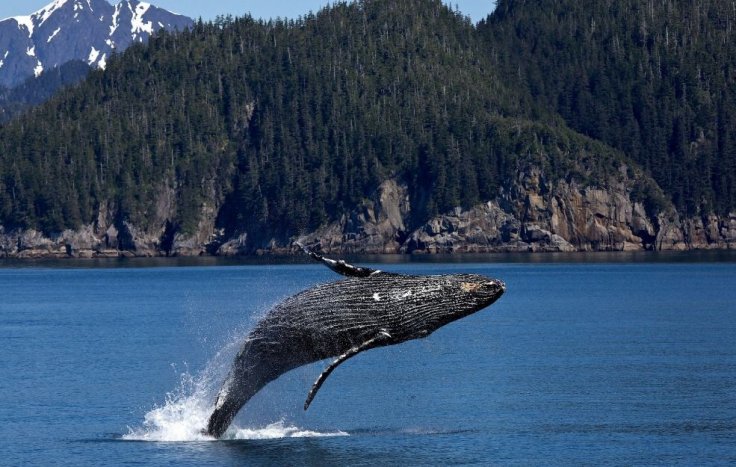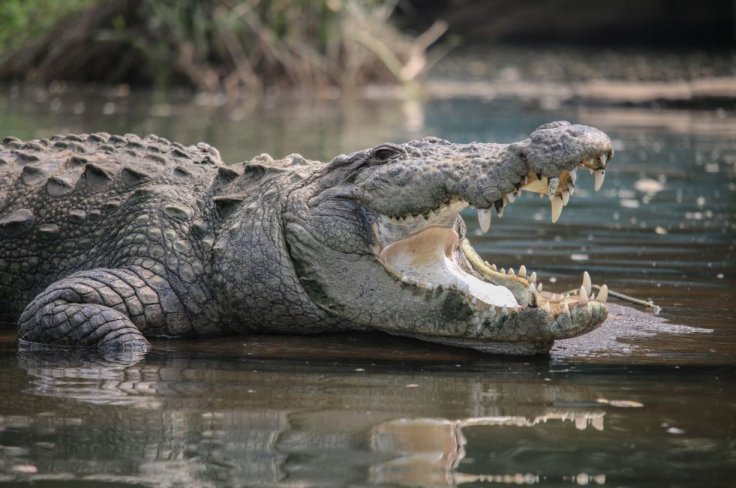Imagine taking a wrong turn and walking straight into the jaws of death? For a humpback whale migrating to Antarctica, an unintended detour has literally led it into a river teeming with flesh-eating crocodiles in Australia.
Marine authorities were left puzzled on Monday when a humpback whale was found trapped in the East Alligator River in Australia's Northern Territory's Kakadu National Park that is infested with crocodiles. It is believed that at least three of the marine mammals on their way to Antarctica for annual migration strayed into the river. Authorities are trying to persuade the animal/s to swim back to the ocean.
Unexpected Journey

Jason Fowler, a marine ecologist, who was sailing with his friends on September 2, noticed three whales over 20 km from the mouth of the river. He told ABC on Monday that, "We happened to bump into some great big whales which completely blew me away."
What left everyone puzzled is how the whales ended up in the dull waters. "The water's incredibly murky. It's got zero visibility. So you can only see the whales when they're right on the surface," Fowler said. He approximated there were three whales, two adults, and youngster, measuring between 10 meters (33 feet) to 12 meters (39 feet) in length.
Fowler also remarked that conservation efforts have led to an explosion in the population of west Australian humpbacks. Expressing his surprise the ecologist added, "There are so many humpbacks heading up the W.A. (Western Australia state) coast now, they're bound to end up in new places. What's incredibly weird is the fact that they're up a muddy, shallow river full of crocodiles -- that's unheard of."
Understanding the Reason for 'Detour'

While the river is named, after alligators, there are none in the island nation. The river acquired the unusual name owing to the inability of European explorers to differentiate between the two similar-looking yet distinct reptiles. Carol Palmer, a Northern Territory government whale and dolphin scientist, said that at least one whale remained in the river during the weekend.
"We don't know what's happened, but it's obviously made a wrong turn and ended up in the East Alligator River," said Palmer. She added, "It's very tidal. It's quite shallow and we're all pretty keen to try to get this guy out."
Persuading the Mammal Back to the Ocean
The methods used to persuade the whale to swim back to the ocean included producing noise by banging against the sides of the boats and using recorded whale calls. Palmer explained, "The crocodile wouldn't be used to seeing a humpback."

She added, "The humpback whale is large enough that none of us think that the crocodiles are going to try to have a go at the humpback." According to Fowler, it is likely that the whale or whales are tiring due to swimming against strong tides to continue to remain around the same part of the river.
Unheard of Occurrence
What makes this bizarre incident even more special is that such an occurrence is unheard of. "We spoke to the Aboriginal elders who speak for that bit of country in Kakadu and they said there's no name for whales," said Fowler. "It's not recorded in their cultural history. They've never heard of this before," he added.
Whale recordings have been known to produce successful results in the past. It was used to guide a whale out of the San Francisco Bay. In the Australian island state of Tasmania, noise from a lineup of boats helped dive a whale out. Here's hoping that the lost 'traveler' makes its way out and does not run into a starving crocodile.









